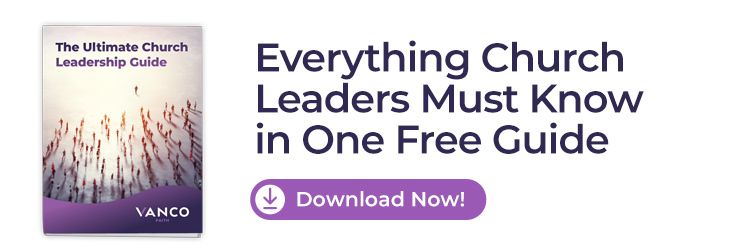
Church leadership retreats play a key role in guiding church leaders throughout their personal and professional development. Leadership retreats provide unique opportunities for church leaders to step away from their regular responsibilities and reflect on their roles in the church, as well as to spend time bonding with their fellow church leaders and honing their leadership skills. These retreats can be transformative experiences for participants and are well worth offering to your church leadership team.
Table of Contents
- Innovative Retreat Ideas
- Benefits of Church Leadership Retreats
- Key Components of an Effective Church Leadership Retreat
- Key Takeaways: Empowering Leadership and Fostering Community
- FAQs
Innovative Retreat Ideas

One of the most important parts of organizing a church leadership retreat is coming up with a relevant retreat theme and valuable activities and exercises for participants. Here are a few creative ideas for a church leadership retreat to inspire you:
- Create vision boards: Provide magazines, scissors, glue and large poster boards, and encourage participants to create vision boards that reflect their personal visions for the church's future. You can also work together on a collective vision board that incorporates some of everyone's personal vision.
- Organize team-building exercises: Plan outdoor team-building activities like ropes courses, trust falls or scavenger hunts. Active exercises like these are a fun way to encourage collaboration and build problem-solving skills.
- Hold interactive workshops: Bring in knowledgeable guest speakers to conduct interactive workshops on leadership topics like conflict resolution, communication or emotional intelligence.
- Journal and reflect: Distribute journals and encourage leaders to spend quiet time reflecting on their faith and leadership journeys, including personal challenges and aspirations. This can give leaders time and space for extended worship and intentional worship. Later, provide opportunities for sharing in small groups.
As you plan activities for your leadership retreat, don’t forget to incorporate church technology to its full potential. Digital tools can play an important role in delivering the best experience possible to your leadership retreat participants.
For instance, virtual communication options make it possible for church staff to participate in retreat activities even if they’re unable to attend in person, or for guest speakers to lead workshops even if they’re located on the other side of the world. Virtual solutions can be especially helpful if you are planning a one-day retreat. Online giving software like Vanco’s eGiving tool can also make it easy for church leaders to design convenient digital giving options for their congregations.
Benefits of Church Leadership Retreats

Church leadership retreats can serve many different purposes. Here are a few of the chief benefits of hosting retreats for your church leaders.
1. Spiritual Renewal
Church leaders are highly susceptible to spiritual burnout due to the unique demands of their roles. Leadership retreats offer dedicated time for quiet reflection and spiritual renewal. They can also encourage prayer meetings in different group settings. This chance to reconnect with their own faith can help church leaders to better serve their congregations when they return.
2. Team Building and Improved Communication
Leadership retreats also provide the perfect environment for building stronger relationships among church leaders. Through team-building activities, honest discussions and shared experiences, your church leaders can strengthen their personal bonds and learn how to work together more effectively.
3. Skill Development
Holding workshops or training sessions at leadership retreats is a great way to enhance the various skills your church leaders need to lead your congregation successfully. Valuable workshop topics might include communication, conflict resolution, pastoral care, organizational management or whatever else is relevant specifically for your congratulation.
Helping your church leaders maintain their core skills and learn new ones is essential for ensuring effective leadership at your church — especially in a rapidly changing world such as ours. Effective church leadership is vital to a resilient and growing church community.
4. Time for Self-Reflection
Retreats also offer church leaders a chance to step back from the day-to-day aspects of life and reflect on their personal and professional development. This type of self-reflection often leads to a deeper understanding of one's own strengths and weaknesses, opening the door to authentic growth and transforming community connections at your church.
Similarly, many church leaders regularly face complex decisions as part of their roles. Leadership retreats provide dedicated space for discernment, where church leaders can seek guidance and clarity on important decisions through group discussions and contemplative prayer.
Key Components of an Effective Church Leadership Retreat

Let’s take a closer look at some of the key components of a church leadership retreat.
Types of Leadership Retreats
There are many types of church leadership retreats. It’s important to consider what kind will be most valuable for your participants. For example, you could specifically tailor your retreat toward team building, financial stewardship, spiritual renewal, church vision planning or many other kinds of topics.
Planning a Church Leadership Retreat
Once you decide what type of church leadership retreat you want to hold, the best way to understand the key components is to break it down step-by-step.
1. Select the Right Setting
For a successful retreat, your retreat’s setting should match its goals. For instance, if you’re holding a team-building retreat, you should choose a venue with plenty of space to plan outdoor activities. If your purpose is to provide an opportunity for quiet, spiritual reflection, somewhere scenic might be appropriate. Whatever setting you choose, it must be a venue where all retreat participants can feel safe and comfortable. Explore retreat centers in your area, which are specifically designed for gatherings like this.
2. Choose the Right Date and Time
There are many considerations that should go into planning your retreat’s date and time. One of the most important considerations is weather — you may not want to plan an outdoor retreat for the middle of winter. Additionally, consider the availability of your participants and keep in mind any potential conflicts with your church’s event calendar.
3. Prepare for the Retreat
Prepare for the retreat itself by planning interesting and valuable activities for your attendees like the ones listed above. Consider the theme of your retreat (team building, spiritual renewal, etc.) and the specific needs of your retreat’s attendees.
4. After the Retreat: Evaluate and Take Action
After the retreat is over, reflect on how it went. You can start by surveying your participants to find out what they liked about the retreat and what needs to improve for next time. You should also try to observe and keep track of the ways the retreat influences the leadership at your church post-retreat and follow up with individual leaders about their growth.
Key Takeaways: Empowering Leadership and Fostering Community

Planning a successful church leadership retreat is hard work, but with the right approach, you can create an experience that has a lasting, positive impact on the people who serve in leadership roles at your church. One of the best ways to plan church retreats more efficiently is to take advantage of event planning software for churches, like Vanco’s Events solution.
FAQs
How do I choose the right theme for a church leadership retreat?
Consider the specific needs and challenges currently facing your church leaders and get plenty of input from participants to ensure relevance.
What are some cost-effective ways to organize a retreat?
Try exploring partnerships with local venues, leveraging volunteer resources from within your congregation or collaborating with other churches or religious organizations.
How can we measure the success of our retreat?
Establish clear objectives and goals beforehand. Then, use surveys or evaluations to gather feedback from participants about tangible outcomes like improved teamwork or communication. Additionally, pay attention to the difference (or lack of difference) you notice in the practical, day-to-day leadership at your church following the retreat.
Can retreats be effective in a virtual format?
Virtual retreats can be very effective as long as you undertake proper planning and preparation beforehand. In particular, make sure you have a reliable software tool for remote collaboration.
How often should a church hold leadership retreats?
The right frequency for church leadership retreats depends entirely on your church’s specific needs and goals. It’s common to hold an annual leadership retreat, but you should consider factors like the size of your leadership team, your church’s available budget for leadership retreats and the urgency of your church’s current needs.
Get Everything Church Leaders Must Know in One Free Guide
Get the tested church leadership strategies and techniques used by top ministries to build healthy and growing congregations. Download our free eBook to learn…
- What to avoid.
- How to set SMART goals.
- Leadership model structures to inspire your church leadership strategy.
- How to recruit volunteers and delegate.
- How to handle challenging situations such as disgruntled church members or staff.
- How to be a good financial steward for your church.
- And more!











